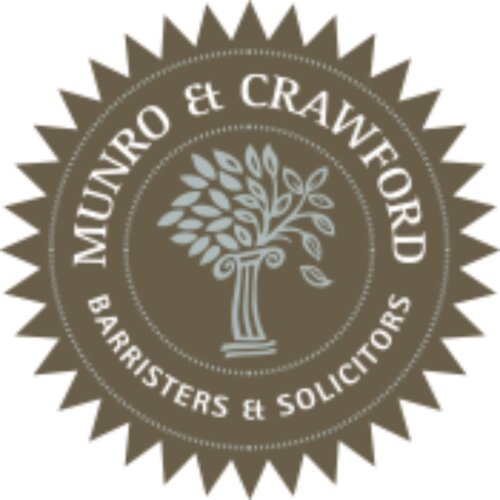Best Antitrust Lawyers in Vancouver
Share your needs with us, get contacted by law firms.
Free. Takes 2 min.
List of the best lawyers in Vancouver, Canada
About Antitrust Law in Vancouver, Canada
Antitrust law in Vancouver, Canada, is designed to promote fair competition in the marketplace and prevent monopolistic practices that could harm consumers or other businesses. The Competition Act is the primary legislation that governs antitrust in Canada, aiming to ensure that businesses compete fairly and consumers have access to a variety of choices.
Why You May Need a Lawyer
You may need a lawyer in antitrust cases to navigate complex legal issues, represent you in court, or negotiate settlements. Common situations that may require legal assistance include allegations of price-fixing, bid-rigging, market sharing, or other anti-competitive practices.
Local Laws Overview
In Vancouver, Canada, the Competition Act prohibits anti-competitive behaviors such as conspiracies to fix prices, allocate markets, or restrict supply. The act also regulates mergers to ensure they do not substantially lessen competition. Violations of antitrust laws can result in significant fines and legal penalties.
Frequently Asked Questions
1. What is the Competition Bureau?
The Competition Bureau is a federal agency responsible for enforcing antitrust laws in Canada, investigating anti-competitive practices, and promoting competition in the marketplace.
2. Can I be fined for violating antitrust laws?
Yes, individuals and businesses found guilty of breaching antitrust laws can face substantial fines and other penalties.
3. How can I report antitrust violations?
If you suspect antitrust violations, you can report them to the Competition Bureau for investigation.
4. What is the role of a lawyer in antitrust cases?
A lawyer can help you understand your rights, defend against antitrust allegations, represent you in legal proceedings, and negotiate settlements on your behalf.
5. How do antitrust laws impact mergers and acquisitions?
Antitrust laws regulate mergers and acquisitions to prevent monopolies and maintain healthy competition in the marketplace.
6. What are some examples of antitrust violations?
Examples of antitrust violations include price-fixing agreements, bid-rigging schemes, market allocation agreements, and other anti-competitive practices.
7. Can individuals file private antitrust lawsuits?
Yes, individuals or businesses harmed by antitrust violations can file private lawsuits to seek damages or injunctive relief.
8. How long do antitrust investigations typically last?
The duration of antitrust investigations can vary depending on the complexity of the case and the cooperation of the parties involved.
9. What are the potential consequences of antitrust violations?
The consequences of antitrust violations can include fines, legal penalties, damages, injunctions, and reputational damage.
10. How can I protect my business from antitrust risks?
You can protect your business from antitrust risks by understanding the laws, implementing compliance programs, training employees, and seeking legal advice when needed.
Additional Resources
If you need more information on antitrust laws in Canada, you can visit the Competition Bureau website or seek guidance from legal professionals specializing in antitrust matters.
Next Steps
If you believe you are facing antitrust issues or need legal assistance, it is advisable to consult with an experienced antitrust lawyer in Vancouver, Canada. They can help you understand your rights, assess your situation, and provide guidance on the best course of action to protect your interests.
Lawzana helps you find the best lawyers and law firms in Vancouver through a curated and pre-screened list of qualified legal professionals. Our platform offers rankings and detailed profiles of attorneys and law firms, allowing you to compare based on practice areas, including Antitrust, experience, and client feedback.
Each profile includes a description of the firm's areas of practice, client reviews, team members and partners, year of establishment, spoken languages, office locations, contact information, social media presence, and any published articles or resources. Most firms on our platform speak English and are experienced in both local and international legal matters.
Get a quote from top-rated law firms in Vancouver, Canada — quickly, securely, and without unnecessary hassle.
Disclaimer:
The information provided on this page is for general informational purposes only and does not constitute legal advice. While we strive to ensure the accuracy and relevance of the content, legal information may change over time, and interpretations of the law can vary. You should always consult with a qualified legal professional for advice specific to your situation.
We disclaim all liability for actions taken or not taken based on the content of this page. If you believe any information is incorrect or outdated, please contact us, and we will review and update it where appropriate.













